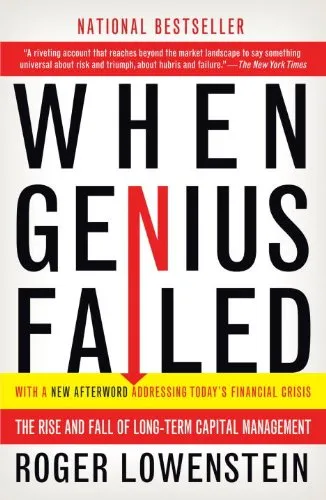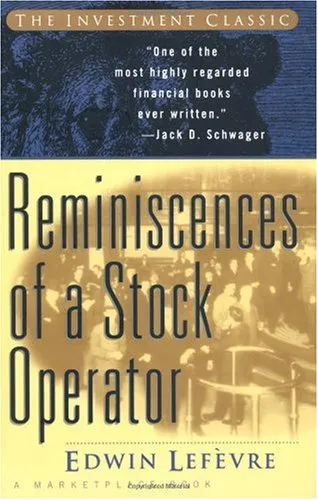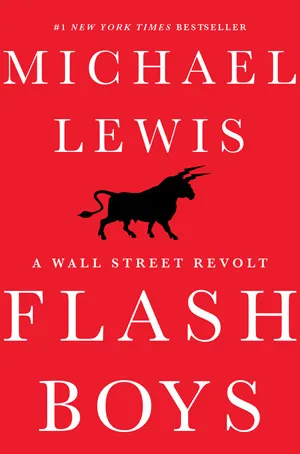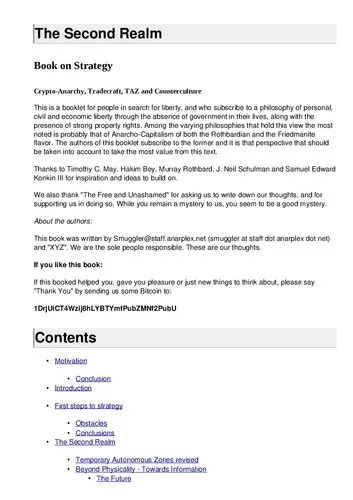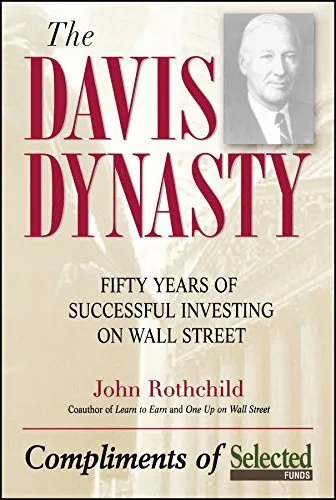When Genius Failed: The Rise and Fall of Long-Term Capital Management
4.5
Reviews from our users

You Can Ask your questions from this book's AI after Login
Each download or ask from book AI costs 2 points. To earn more free points, please visit the Points Guide Page and complete some valuable actions.Related Refrences:
Welcome to an intricate exploration of financial genius and devastating failure in the realm of high-stakes investing. In "When Genius Failed: The Rise and Fall of Long-Term Capital Management," Roger Lowenstein narrates the compelling saga of one of the most renowned hedge funds in history. This book unravels the complexities of the financial world, providing readers with a vivid understanding of how ambition, intelligence, and risk can collide in the world of hedge funds. This introduction will guide you through the key aspects of the book, its core messages, notable excerpts, and its significance in the broader context of financial literature.
Detailed Summary of the Book
"When Genius Failed" chronicles the astounding journey of Long-Term Capital Management (LTCM), which was founded in 1994 by John Meriwether, a prominent Wall Street trader. The firm quickly attracted some of the most brilliant minds in finance, including Nobel Prize-winning economists Myron Scholes and Robert Merton. LTCM leveraged advanced mathematical models to exploit market infinitesimals, promising unprecedented returns with seemingly limited risk. Armed with theoretical rigor and overconfidence in their complex mathematical models, this elite team of traders believed they could conquer the market.
Over the next few years, LTCM's success seemed to affirm its model’s efficacy—delivering massive profits and attracting billions in capital from investors. However, as the book reveals, the firm’s reliance on heavy leverage and their belief in the infallibility of their models led to an escalating spiral of risk. The key turning point came in 1998 when unexpected market fluctuations, exacerbated by the Russian financial crisis, caught LTCM off guard. Their leveraged positions unwound dramatically, leading to a potential collapse that threatened the stability of global financial markets.
Lowenstein's narrative captures the Wall Street drama as the Federal Reserve, realizing the systemic threat posed by LTCM's potential failure, orchestrated a high-stakes intervention to prevent cascading financial chaos. Through meticulous research and compelling storytelling, Lowenstein offers insights into LTCM’s fall from grace, drawing parallels between human hubris and the limitations of financial models.
Key Takeaways
- The Perils of Overreliance on Mathematical Models: The story of LTCM underscores the risk of depending too heavily on quantitative models without considering real-world uncertainties.
- Leverage as a Double-Edged Sword: While leverage can magnify returns, it also amplifies losses, highlighting the importance of risk management.
- The Fragility of Financial Systems: The LTCM crisis illustrated how the failure of a single hedge fund could pose a broader risk to global financial stability.
- Human Element in Financial Decisions: Despite the precision of quantitative models, human judgement and emotional factors invariably play a crucial role in finance.
Famous Quotes from the Book
"The genius of finance lay not merely in unlocking great gains but in trying to accomplish that goal while minimizing exposure to great losses."
"Traders had long learned that in market-world, magic was the hardest trick of all."
Why This Book Matters
"When Genius Failed" is not just a riveting tale of a dramatic financial collapse but serves as a cautionary reminder of the hubris often inherent in financial markets. It is a critical exploration of the intersection between academic theory and market practice. The story of LTCM holds enduring relevance, especially in today’s financial climate where complex derivatives and high-frequency trading continue to shape market dynamics. By dissecting the rise and fall of LTCM, Lowenstein provides insightful lessons on the potential consequences of unchecked risk, making this book essential reading for investors, economists, and anyone fascinated by the workings of Wall Street.
Free Direct Download
You Can Download this book after Login
Accessing books through legal platforms and public libraries not only supports the rights of authors and publishers but also contributes to the sustainability of reading culture. Before downloading, please take a moment to consider these options.
Find this book on other platforms:
WorldCat helps you find books in libraries worldwide.
See ratings, reviews, and discussions on Goodreads.
Find and buy rare or used books on AbeBooks.
1474
بازدید4.5
امتیاز0
نظر98%
رضایتReviews:
4.5
Based on 0 users review
Questions & Answers
Ask questions about this book or help others by answering
No questions yet. Be the first to ask!
